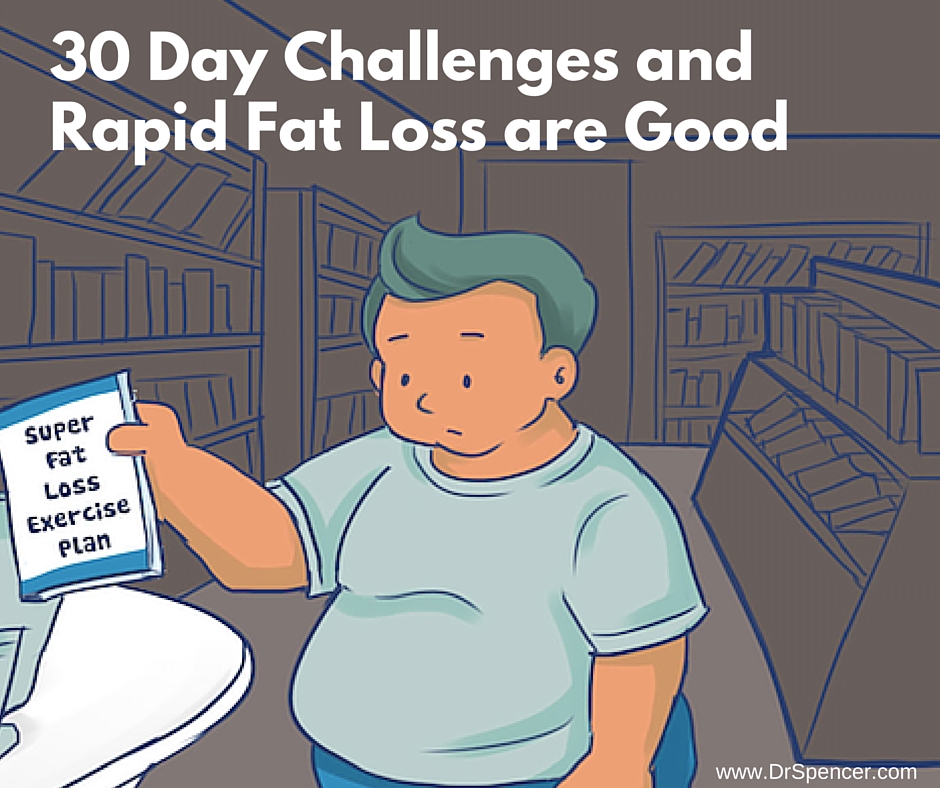There is a growing dichotomy amongst weight loss coaches where one group sides with 30 day challenges and quick weight loss and the other sides with slow long-term weight loss. These things don’t have to be mutually exclusive though. In fact, I initiate a rapid fat loss plan with my patients and online followers for good reason as I will explain.
The arguments
30 Day Challenges are bad
The basic premise of 30 day challenges being bad is that it is seen as a finite weight loss program that will end up in weight rebound because it focuses on short-term weight loss and not long-term. This is a good argument, because if you read my book The Fat Loss Prescription (Get here on Amazon) you will see that it is long-term weight loss success we want to achieve, not short-term. Many people can lose weight, but most people cannot keep it off.
By focusing on a short-term outcome (30 days of weight loss), it is thought that the long-term habits for sustainable weight loss will be lost. I understand that. With a greedy weight loss coaching looking to score money off a vulnerable person who wants to lose weight quickly without regard to long-term management, this is definitely problematic.
It also used to be thought that since rapid weight loss is not sustainable, the weight lost will be regained because slow and steady is supposed to win the race (when it comes to weight loss). Well that’s wrong – read on.
30 Day Challenges are good
Is there a silver lining to 30 day challenges? You’re damn right there is.
As mentioned above, we used to think a slower more sustainable approach in the beginning of a weight loss plan was better because it led to improved long-term weight loss success. Well we were wrong. A very cool article in the New England Journal of Medicine goes over this myth and others. You should check it out. There have been more studies looking at this as well since that article came out. In fact, using a structured meal replacement program in the beginning with more rapid weight loss may lead to more retention in the long-term (less drop outs).
But wait, we are talking about two different things aren’t we?
Here is the bottom line:
If someone is selling you a 30-day challenge without proper ongoing long-term support afterwards, tell them to take a hike. However, if someone is offering a short-term rapid weight loss plan that develops into a long-term plan, I would hear them out. Take a look at their successes. Talk to them about their long-term plan.
How fast can I lose weight? The usual rule of thumb is 1-2 pounds per week, but upwards of 3-4 pounds per week can be okay if you have a lot to lose (in the high 200s – 300 pound range or more). This amounts to about 1% of your bodyweight. I would not go over this amount though as you are at risk of developing gallstones and potentially electrolyte abnormalities depending on your diet. Often times when you go faster, the initial weight loss is a lot of water.
Oh one more thing. If you’re losing weight slower than mentioned above, this doesn’t mean you are doomed or that your coach sucks. All I am saying is that you don’t need to put a governor on your rate of fat loss (unless you are already lean then you want to lose fat slower to keep your muscle). Let it happen.

